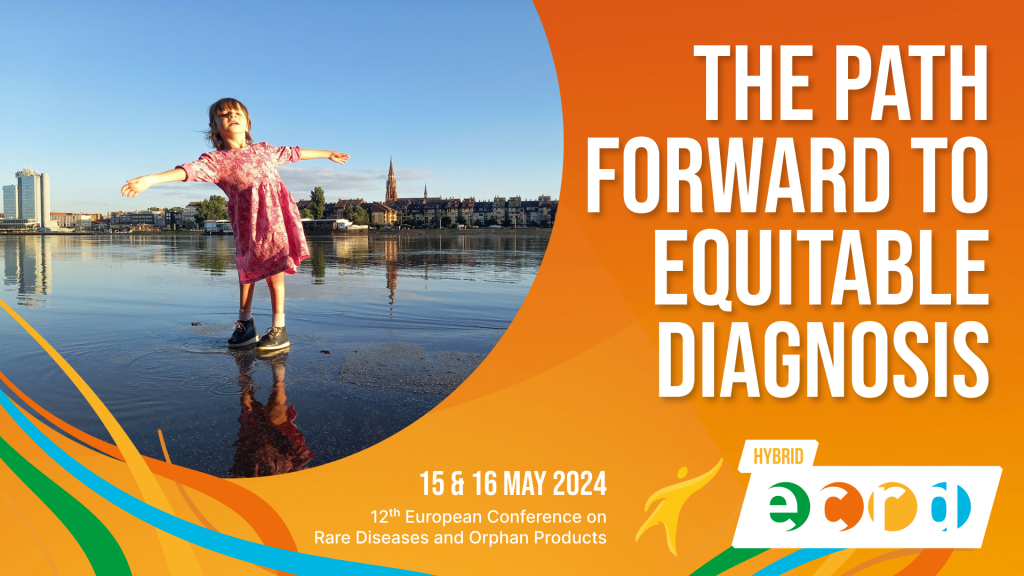ECRD 2024: A Faster Path to Diagnosis for Children with Rare Diseases
May 2024The diagnostic journey for children with rare diseases is typically prolonged and filled with challenges, delaying crucial treatments and placing substantial emotional and financial burdens on families. However, expanding newborn screening programmes is among the promising solutions that could significantly improve the lives of children with rare diseases and their families.
Insights published just this week from a survey by EURORDIS-Rare Diseases Europe, as part of the organisation’s Rare Barometer survey initiative, unsurprisingly reveal strong support within the rare disease community for expanding newborn screening. Developed in collaboration with policymakers, patient advocacy groups, and geneticists, the survey collected feedback from over 5,000 participants across Europe, comprising both rare disease patients and their family members.
The survey’s findings underscore the need for European policymakers to act. An overwhelming 73% of respondents stated that they would have preferred if the rare disease impacting them were diagnosed at birth. Furthermore, 90% stated their support for any rare disease being screened for at birth, so long as this results in quicker diagnoses, better recognition of disabilities, and preventive healthcare practices.
Early identification during the newborn period can significantly improve a child’s health and quality of life through targeted treatment and intervention plans.
Iuliana Dumitriu, a mother from Romania, illustrates the impact of early screening with her son Victor’s experience with Coffin-Lowry syndrome. “Screening at birth would have spared our family seven years of uncertainty,” she states.
Victor was only diagnosed at age seven, after enduring a long search for answers about his developmental condition. “Once diagnosed, our lives improved dramatically, becoming more relaxed,” Iuliana explains, highlighting that an earlier diagnosis would have facilitated prompt interventions to prevent physical complications linked to his condition.
Reflecting on the potential benefits of an earlier diagnosis, Iuliana adds, “His childhood would have been far less stressful. We could have started targeted therapies much earlier, directly addressing only his specific needs.”
Iuliana’s story is all too common for Europe’s families of children with a rare disease.
Jessie Dubief, Social Research Director and Rare Barometer lead at EURORDIS, states: “The latest newborn screening survey shows that people with rare diseases and their families overwhelmingly see newborn screening as crucial for reducing diagnostic delays and accessing comprehensive information and support.”
Gulcin Gumus, Research and Policy Senior Manager at EURORDIS, agrees: “Expanding newborn screening across Europe provides significant opportunities for earlier disease detection, treatment, and enhanced quality of life, sparing families years of uncertainty and inadequate care. Health systems can – and must – embrace newborn screening to guide children toward better health from the very beginning.”
But newborn screening isn’t the only solution. Policymakers should also strengthen networks of specialised healthcare providers, enhance data system interoperability, recognise undiagnosed patients as a vulnerable group, and support research and equitable implementation of advanced diagnostic technologies.

In just five days’ time, on 15-16 May, EURORDIS will host the 12th European Conference on Rare Diseases and Orphan Products (ECRD 2024) in Brussels and online. Among the conference’s key sessions will be one titled ‘The Path Forward for Equitable Diagnosis,’ focused on enhancing and shortening diagnostic journeys. The conference will also feature the unveiling of significant new findings from yet another major Rare Barometer survey, which will reveal the diagnostic challenges faced by our community and the disparities in diagnosis across geographic and demographic lines.
Wolfram Nothaft, Chief Medical Officer at Takeda (a top donor of ECRD 2024) and Co-Chair of the Global Commission to End the Diagnostic Odyssey for Children with a Rare Disease, highlights the importance of timely diagnosis:
“For a child with a rare disease, an accurate and timely diagnosis can be key to a longer, healthier life.
“We’re pleased to be partnering with the commission’s diverse membership which is committed to bringing creative recommendations and learnings to the field to improve the lives of children living with a rare disease.”
Make sure to join us at ECRD 2024 to engage in crucial discussions on reducing lengthy diagnostic journeys for everyone across Europe’s rare disease community. Register now to attend the conference online!
Contact
Julien Poulain
Communications Manager
EURORDIS-Rare Diseases Europe
Julien.poulain@eurordis.org
+33 6 42 98 14 32
